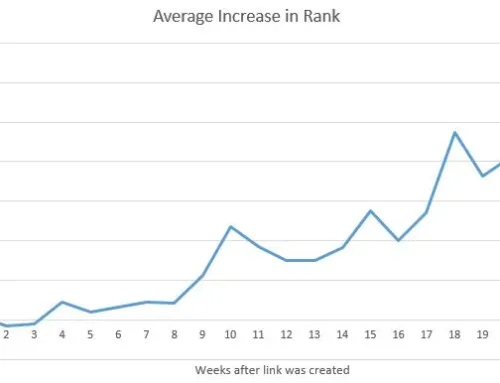
I understand we all want our sites to have real authority. In SEO, I learned fast that not all backlinks are created equal. The ones from university websites — those ending in .edu — are in a league of their own.
They are tough to get, but a single .edu backlink can do more for your website’s authority than a pile of other links. But here’s the thing: their power isn’t just about the three letters in the domain. Let’s talk about why edu website backlinks are so valuable in 2025 and the best ways to earn them. This guide will show you how to get edu backlinks that make a real difference.
What makes edu backlinks so special?
A link from a website with an .edu domain is called an EDU backlink. Google thinks these websites are very trustworthy because they are run by educational institutions.

The consensus in the SEO community is that edu backlinks have a huge positive impact on rankings. Decades of practice show these links are powerful assets. We see the results and know they work.
At the same time, Google’s representative John Mueller states that the algorithm doesn’t have a special ranking factor just for the edu TLD.
Both sides are right. Google is accurate about the mechanism. The truth is that the edu TLD is a proxy for all the signals that Google values: age, trust, high authority, and quality content. Here’s why they matter so much:
- Instant authority: Harvard (DA 93) and MIT (DA 94) have built trust over many years, and a link from them gives some of that powerful authority to the site that links to it.
- A high standard: Colleges and universities have high standards for what they link to. A link is a strong sign to Google that your content is well-researched, accurate, and useful.
- A boost in rankings: Research shows that sites with at least five edu backlinks rank 38% higher on average than sites that don’t have them.
- A targeted audience: These links bring a lot of people to your site who are interested in what you have to say, like students, professors, and researchers.
How to get edu backlinks

Getting these links isn’t easy. You can’t just ask for them. You must earn them by providing genuine value. Here are the strategies that have actually worked for me to get free edu backlinks.
Get on university resource pages
Many university departments have pages listing “helpful resources” or “useful links” for their students. If you have an amazing guide or data study, this is a perfect fit.
💡 How I do it: I use Google searches like site:.edu “resources” + ‘your keyword” to find these pages. Then, I send an email to the department head, not just asking for a link, but explaining how my resource can help their students.
Use broken link building
This is my favorite because you help someone out first. You find a broken link on a university website and offer your content as the perfect replacement.
💡 How I do it: I use tools like Ahrefs or Check My Links to find dead links on those resource pages I found earlier. Then I use the Wayback Machine to see what the old page was about and create something even better.
Offer a scholarship
You create a small scholarship for students in your field, and university financial aid offices will often link to it.
💡 How I do it: I create a dedicated page on my site explaining the scholarship details ($500 is a good minimum). After that, I get in touch with the offices that handle financial aid. Now, a lot of universities use third-party scholarship portals, so the link may not come from the .edu domain.
Provide student and staff discounts
If you sell a product or service, offering a discount is a great way to get a link and new customers. Universities often have pages listing perks for students and staff.
💡 How I do it: I search for site:.edu “student discounts” or site:.edu “staff benefits”. Then, I contact the student services or HR department and tell them about the offer.
Create a careers page

Universities want to help their students get jobs and internships. You can get links to their career services pages if you’re hiring.
💡 How I do it: Create a careers page on the site and reach out to university career centers. Be aware that some schools now use external job boards like Handshake.
Use your network (alumni & experts)
If you’re a university graduate, check out the alumni website for opportunities to feature your work. Another great tactic is to interview a professor for your blog. They often link to the published interview from their university profile page.
The toolkit for .edu link building
You need the right tools to do this right. Here’s what I use:
- Finding new customers and looking at your competitors: Ahrefs, SEMrush, and Moz Pro are all very useful for looking at competitors, finding target edu sites for backlinks, and finding places to get links.
- Outreach and contact info discovery: Hunter.io is great for finding the email addresses of department heads or webmasters. Pitchbox and BuzzStream help you scale and track your email outreach campaigns.
- Broken link identification: Screaming Frog SEO Spider is a powerful tool for scanning an entire .edu site to find broken links.
- Content analysis: Wayback Machine (Archive.org) is a must-have for seeing what content used to be on a broken link.
Using edu backlinks to your advantage in SEO
After you acquire EDU backlinks, you must make the most of them to enhance your SEO efforts.
📌 A quick note: avoid low-value tactics like trying to get edu profile backlinks from forum signatures, as these rarely provide any real benefit. Instead, focus on these high-impact actions:
- Monitor your backlinks: Check their status regularly to ensure your EDU backlinks remain active.
- Diversify your backlink profile: Although EDU backlinks are important, you must also build a varied link profile that incorporates links from other reliable sources.
- Quality over quantity: A few high-quality EDU backlinks have a much greater effect than many low-quality ones.
- Relevance of content: Make sure the content surrounding your EDU backlinks is pertinent and appropriate for the learning environment.
- Updates to the content: Keep your content current to maintain the accuracy and value of the linked information.
To sum it all up
In short, EDU backlinks are a powerful tool for SEO because they give your site authority, trust, and the chance to get targeted traffic. But it takes a long time to earn them. You can’t get ahead by taking shortcuts; you have to give real value.
You also need to make sure that your backlink profile is healthy. Backlinks from edu websites are strong, but they shouldn’t be your only focus. By carefully adding EDU backlinks to your SEO plan, you can greatly improve your search engine rankings and your credibility. The team at Buylinkco.com is ready to help you if you need a partner.
Frequently asked questions
How many .edu backlinks do I need?
Studies show that the best sites for competitive keywords often only have 3 to 7 high-quality.edu backlinks.
Are .edu links better than .gov links?
Both are useful because they come from trusted sources. Some SEOs think that .gov links are a little bit stronger, but both are still considered the best. The best strategy is to have a wide range of backlinks from sites with the following endings: .com, .org, .edu, and .gov.
Do .edu links still work after the recent Google updates?
Yes. High-quality, legitimately earned backlinks that education sites provide are still very effective. The updates simply raised the bar and made it more important to avoid spammy tactics and focus on providing real value.



